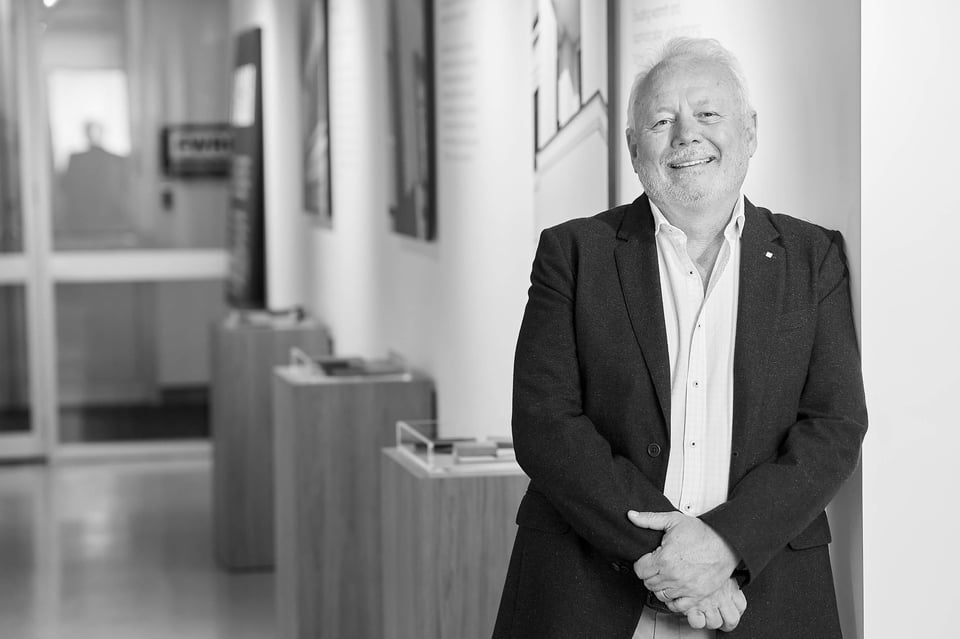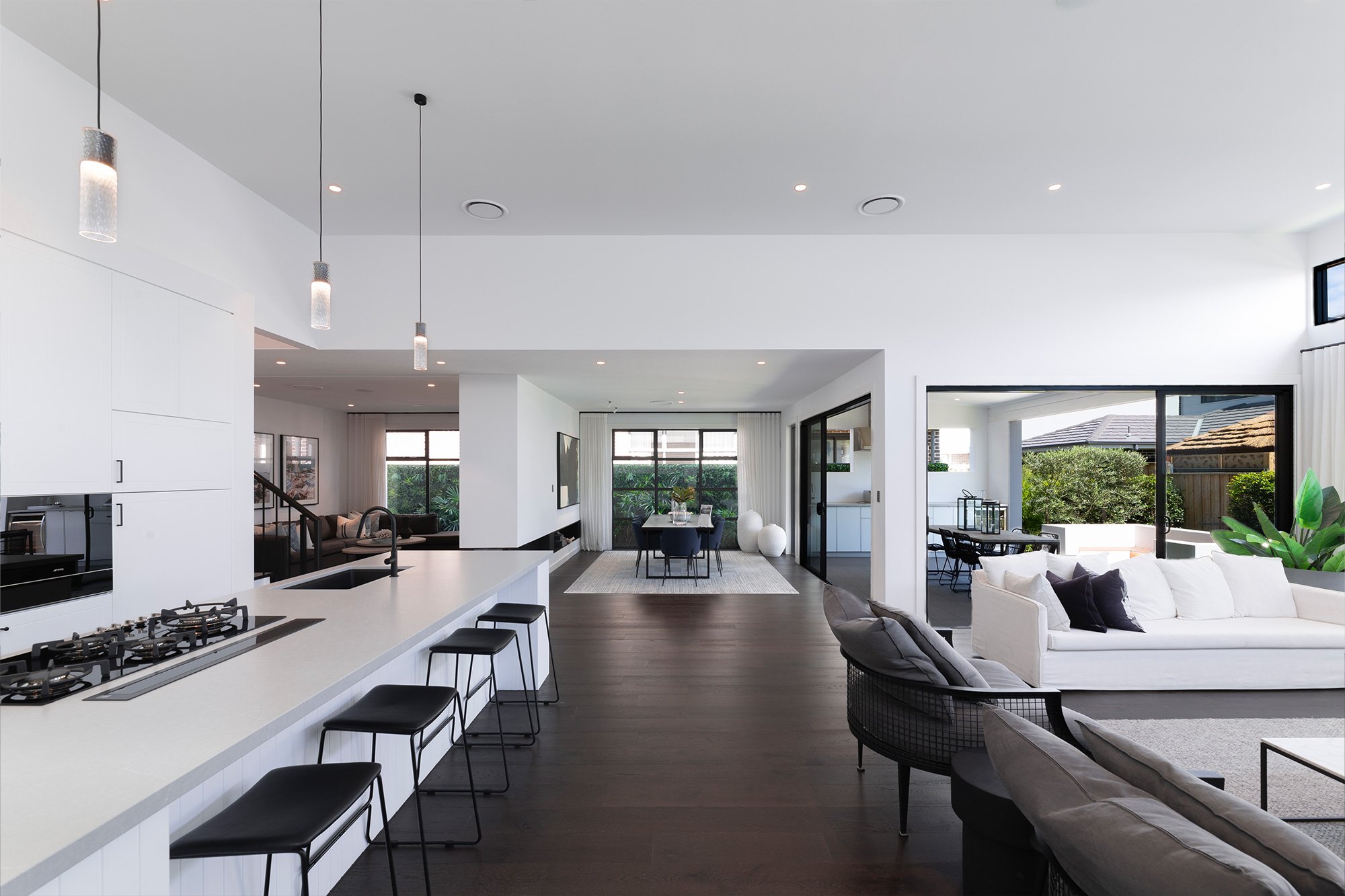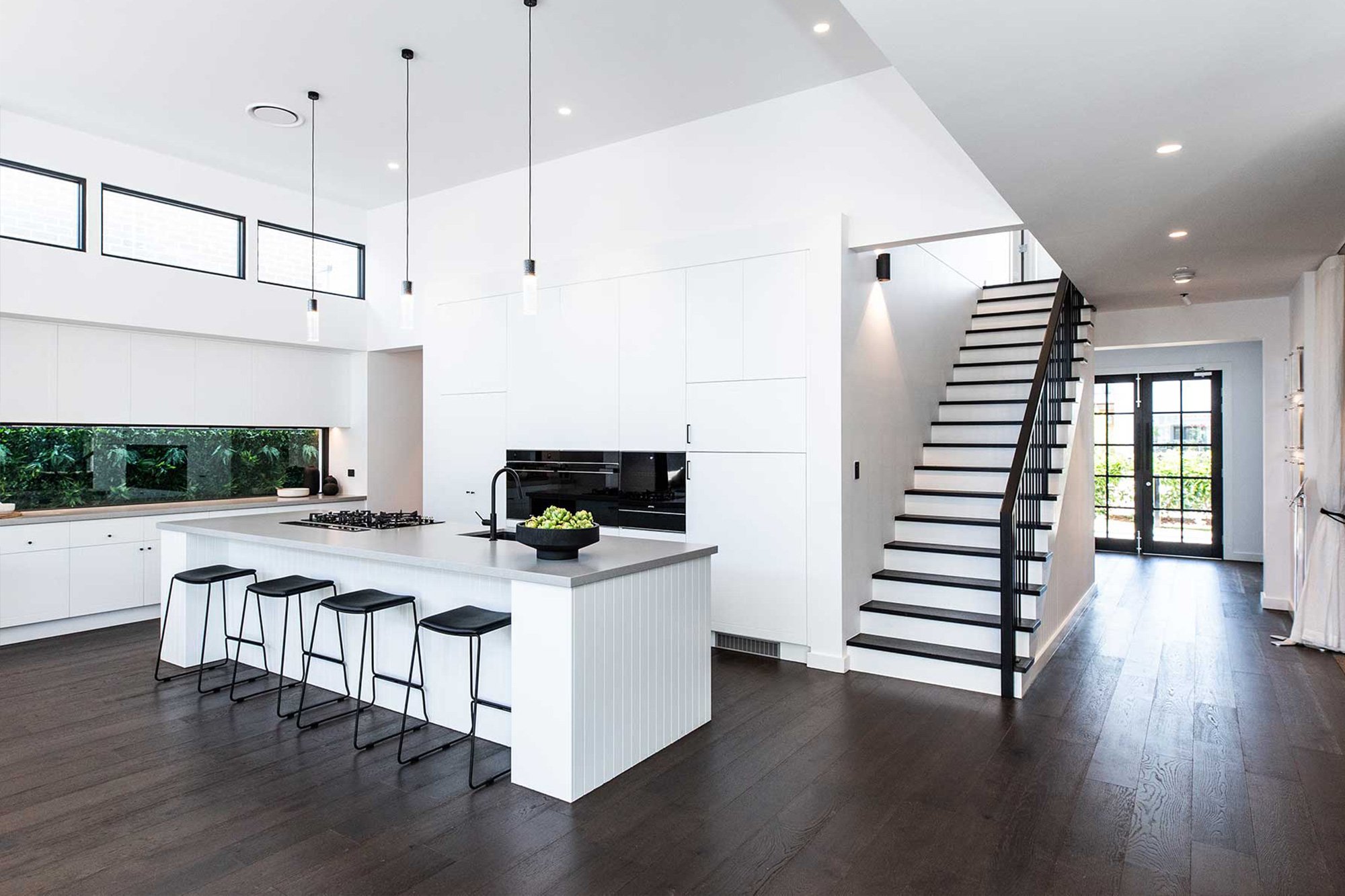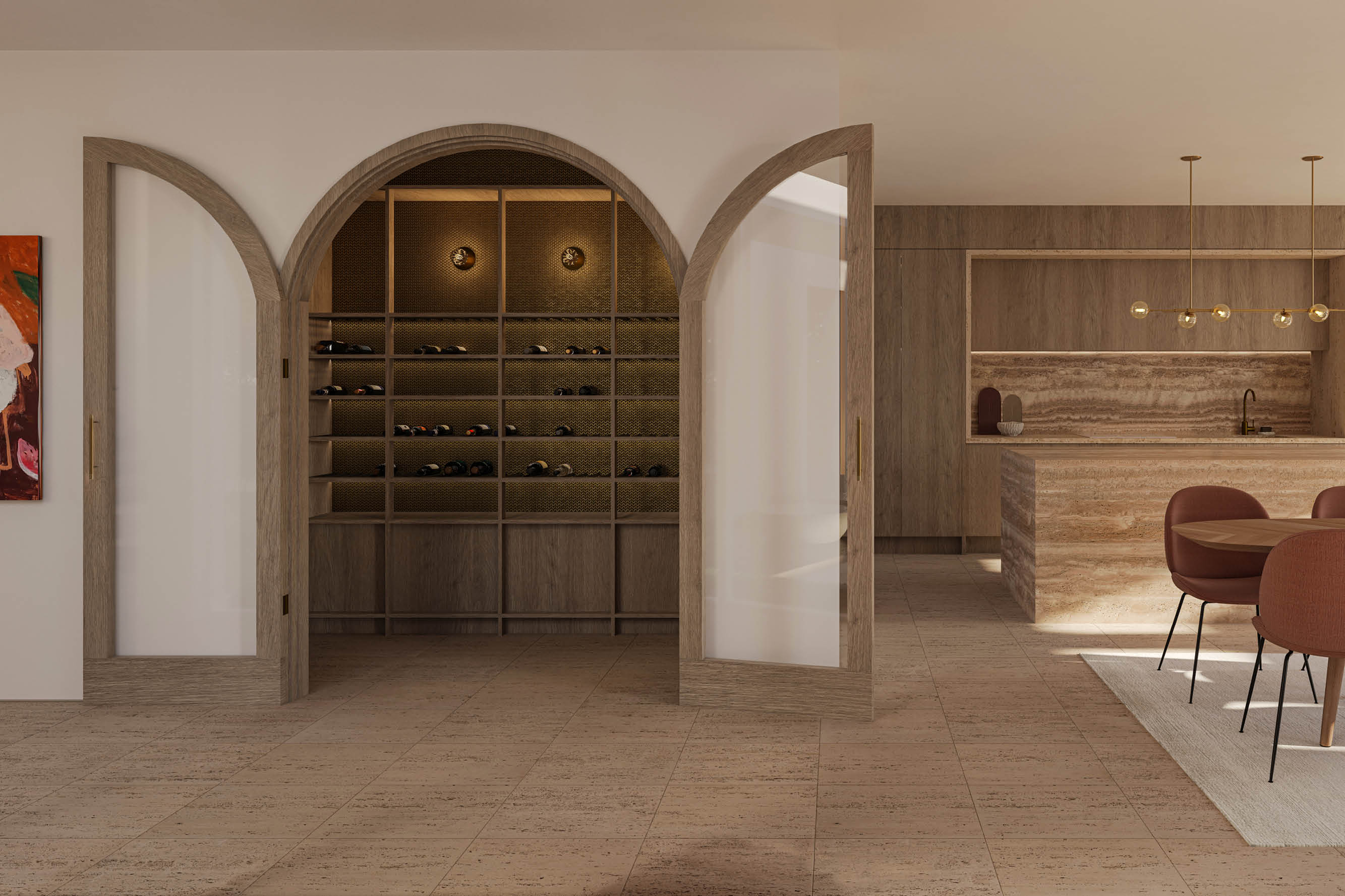Are you thinking of a custom project in 2024? We speak with Neill Evans, one of the Founders and Directors of Hall & Hart to gather insights and tips from a builder's perspective on bringing your dream home to life.
Whether you're ready to start the process now or in 12 months, crafting your family's dream home requires meticulous planning, encompassing everything from budgeting to future-proof design choices.
Neill, who was previously the CEO of ASX-listed GWA Bathroom & Kitchens (Australia’s largest fixtures & fittings company with brands including Caroma, Dorf & Clark) and before that Executive General Manager of CSR Bricks & Roofing, shares his insights on what you should think about for your custom build project in 2024.

Where do you start when planning for your new home?
The most important step is understanding what is achievable on your block. Too often people start the process with the design of the home only to realise it’s not achievable on the block they have. They either must redesign the home to suit the block or sell up and buy another block – an option that may not be practical for many.
Considerations include flood zone impacts, bushfire limitations and or setbacks from other structures. With the advent of 7-Star design standards, designs need to prioritise aspects and orientation in home building.
One aspect that stands paramount is town planning and compliance. At Hall & Hart, we believe that ensuring compliance upfront in the design process is key to ensuring a smoother, stress-free custom home building experience. Our thorough compliance review at the initial design stage allows us to identify and address potential compliance issues before plans are approved and before construction begins. This proactive approach saves time, money, and delays in the planning phase.
Neill emphasises, "Getting a comprehensive understanding of the block before commencing is paramount to avoiding significant time and energy wastage. The challenge lies in finding a trustworthy builder, as some may provide information that aligns with your preferences rather than what is realistically possible. Receiving unfavourable news isn't necessarily a setback—it can potentially save you thousands of dollars compared to discovering issues later in the process. Consulting with family and friends who have previous building experience can also offer valuable insights, as each block is unique and comes with its own set of challenges."
What should people include in their building goals?
“For the best possible outcome my advice to anyone building a custom home is to align your budget to your aspirations, maintain transparency with your builder and allow for contingencies, for the best possible outcome,” states Neill.
While the allure of a custom home lies in its potential to reflect your personality and aspirations, the process involves intricate financial considerations.
“Discovering that certain elements you've set your heart on are financially out of reach can be a bitter pill to swallow. The key to navigating this delicate balance lies in having a clear understanding of your financial boundaries and thorough preparation early in the process, before you move into the design phase of your journey and before you meet your interior designer. “ Neill says.
The partnership between homeowners, designers, and builders thrives on open communication. To achieve the best possible outcome for your home design, be transparent with your budget to your builder. When you communicate your budget, builders can focus on delivering value that matches your expectations. Rather than fearing that your budget will be exploited, recognise that sharing it opens the door to a collaborative process that results in a home that truly reflects your vision and aspirations.
Neill highlights “Be prepared for the unknown. A knockdown rebuild in Sydney is an emotional and can be at times a challenging journey”. Allowing for contingencies provides a financial buffer to address these unforeseen circumstances, ensuring a smoother progression of the project and preventing budgetary strain. It also allows for adjustments in case of design modifications or upgrades, contributing to a more resilient and successful knockdown-rebuild experience without compromising on the envisioned outcome.
When it comes to design considerations – build for now and plan for the future. Will there be elderly parents to consider? How many separate areas will you need as the kids continue to grow? How will rooms and spaces need to evolve? What are must-haves and nice-to-haves?

What are some budgeting mistakes people make?
-
Not knowing the limitations of your block can have a big impact on how much it will cost to build. Many people don't realise how much extra money they might have to spend if the site has restrictions from the local council or if there are high costs associated with the land. It's important to deal with these issues early in the planning process to avoid stress later on. The best idea is to work with your builder to understand the cost implications of the block before you purchase it. Neill adds “We have a great team who work very closely with clients in finding the perfect block – it makes all the difference when it comes to designing and building for both client and builder.”
-
Building the biggest house. People make the mistake of building the largest house they can afford and then realise they don't need the extra space. Building the largest house you want isn’t always the best decision, there is little point if it means compromising on the quality of finishes due to budget constraints. Instead think about the size of the house you need, allowing flexibility in your budget for a premium finish. It’s better to build a house that's a little smaller but with a superior internal and external finish. Good design means style and functionality work in parallel so it’s best to work with a recognised designer and builder to achieve the best possible outcome.
-
Changing your mind. Making significant changes to the original plans, particularly during construction can be expensive. Changes may lead to additional labour, materials, and design costs, impacting the overall budget and extending the timeline of your project.
-
Landscaping. People often overlook the cost of landscaping – it’s more expensive than most people expect. Neill recommends getting some ideas from a local landscaper before you start the process to understand what the costs are likely to be.
-
Not planning for the future. As you grow your home should grow and evolve with you to accommodate your changing needs and to reflect your lifestyle in years to come. It's crucial to factor this into the initial design phase otherwise modifying your home later on could lead to significant costs. A well thought of designed home has the potential to significantly enhance your quality of life.

How do you know if a builder is reputable?
“A good builder will listen to your needs and provide realistic cost estimates within the early stages. The builder will also conduct a detailed review of the site, as conditions such as the slope will make a significant impact on the cost of build.” Neill said
As a minimum, the builder should do a contour survey to understand the slope on the block and a geotechnical report to determine if there is any rock likely to be encountered during construction before providing firm prices. Further, a thorough review of the council conditions is critical to understand all compliance issues on your block.
Be wary of costs that look too low or a contact that has a lot of provisional quotes for site costs, such as sewer stormwater, as these can increase significantly during the building process if they are not fixed before contracts are signed.
Inspect the inclusions that the builder provides as standard as this will alter the price dramatically, a cheap price typically means a cheaper standard of build.
“A strong relationship between builder and client is fundamental to success. You need to be as committed to your build as your builder is and promote open, honest communication. A good builder may tell you something you might not want to hear but a great builder will help you find a solution. Remember: a great builder has a strong reputation, knowledge and experience.” Neill said.
Related Content
The Crucial Role of Early Compliance Assessment
Aligning Your Budget to Your Aspirations
Being Transparent with Your Building Budget
Hall & Hart. Knockdown Rebuild Specialists
The Emotional Journey of a Knockdown Rebuild


